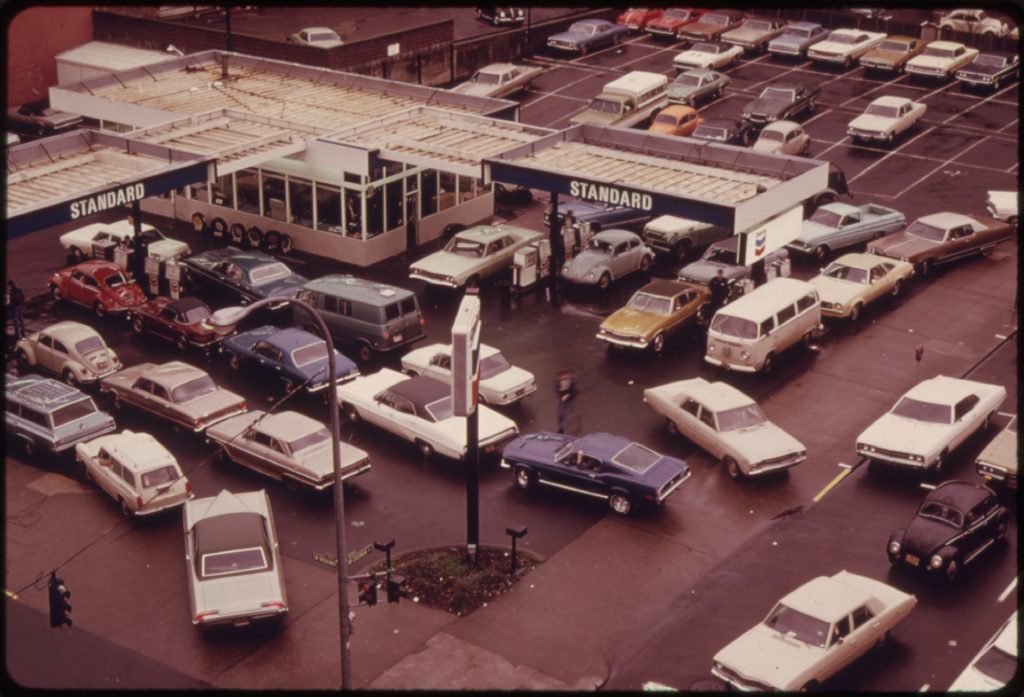How did we end up with “fracking” as the most commonly-used shorthand term for the hydraulic fracturing process, rather than the technically correct “frac’ing”? And, you might wonder, why does it matter anyway?
The word is so much a part of the mainstream lexicon that until recently I used it in an assignment for my Professional Land Management class: “Write a paper on the Pros and Cons of Fracking.” It wasn’t until a student brought the different spellings to my attention that I had a bit of an epiphany: Yes, the “k” makes it clear how to pronounce the word, but it also works against the process itself, subtly, subconsciously lending a harsh, offensive feeling to it. Which makes people feel, without any other justification, that “fracking” is a “dirty” word, and thus also a “dirty” process.
So, with my new, heightened awareness, I believe that it’s our responsibility, as ambassadors of this industry, to remove the “k” from the word and abbreviate it as “frac” or “frac’ing.”
Origins of “Fracking” with a “K”
It turns out that there was actually a single person who started the “fracking” ball rolling.
While he didn’t coin the “with a k” spelling, Matthew Lewis, a communications strategist, says his intention was to clarify the pronunciation of the word “frac’ing” for reporters. He says, “If you listened to grassroots activists in the West or roughnecks in the oil patches, they pronounced it ‘fracking,’ or said ‘frac job.’ So I said, let’s print it the way people actually pronounce it. Let’s not use the industry abbreviation; let’s put in a ‘k’ and be done with it.”
He included it in a press release in 2005 for an environmental group, and, although not the first use, it does seem to be where that spelling took off. There is some sense that his intention might also have been to create a word that embodied the negative elements of the process, but I wasn’t able to find clear evidence of that.
The F-word
“Fracking” has become so much a part of mainstream usage that it was added to the Merriam-Webster dictionary in 2014.
The word has been used so much by opponents of the technique that they are even sometimes known as “fractivists.”
There was an attempt by the industry to reclaim the word “fracking” through an advertising outreach campaign in 2014 focused in Pennsylvania.
Not entirely surprisingly, it didn’t work.
I understand the impulse, but I don’t think we have a chance of reclaiming a word that sounds like hitting something and resembles a legitimate curse word.
Our History of Foreign Oil Dependence
It is not overstating it to say that the hydraulic fracturing process has given the United States independence from foreign oil.
Some of you are old enough to remember the energy crises of the 1970s, while younger folks may have heard the stories from family members or other industry professionals.
In 1973 OPEC (the Organization of Petroleum Exporting Countries), put an oil embargo in place, targeting the US and Canada, among other countries. This disrupted oil supplies and was the “first oil shock” of the 70s. As a result, Americans from coast to coast faced persistent gas shortages.
The ’73 oil embargo was influenced by multiple economic factors, but OPEC, already angry with the US for devaluing the dollar (a move by President Nixon in 1971), decided to exact revenge when the United States supported Israel after a surprise attack by Egypt and Syria in the Yom Kippur War in October 1973.
The effects were immediate and shocking, with oil prices increasing by 387%.
Gasoline prices skyrocketed at the pump, but even worse, there often literally wasn’t enough gas to go around.
Drivers frequently faced around-the-block lines at gas stations when they tried to fill up, and odd/even rationing was introduced, meaning that if the last digit on your license plate was odd, you could get gas only on odd-numbered days, or even on even-numbered days. Some gas stations took to posting flags — green if they had gas, yellow if rationing was in effect and red if they were out of gas.
This was also the origin of the nationwide 55-mile-per-hour speed limit, enacted to conserve fuel.
While the energy crises ended, the experience, plus the permanently increased cost of oil, pushed the US oil and gas industry to increase production of oil from our own lands.
Benefits of Frac’ing—Taking Out the K
One of the most exciting reasons for being in this industry today is that, for the first time in our nation’s history, we have the opportunity to be an energy-independent nation.
But, as in any industry, there are those practitioners who are careless or negligent.
As oil and gas industry professionals, we have the responsibility to keep the communities in which we drill safe and secure. Fracturing, like any other drilling process, needs to be applied with best practices, careful maintenance, and safety features in place.
This recent news item points out the importance for drilling companies to avoid negligence by putting in place high standards of safety and maintenance in frac’ing.
It’s a valid issue. It’s also a public relations issue that we can help with.
Hydraulic fracturing offers real, tangible benefits and opportunities to the US – economically and strategically.
If those of us inside the oil and gas industry can challenge the public perception of the process, in part by staunchly using “frac’ing” instead of “fracking” in our communications, we can remove the stigma of the word and call attention to the benefits of frac’ing, to create a win-win solution.
Further Reading
From Popular Mechanics comes this well-written article debunking some of the things people say about hydraulic fracturing: Is Fracking Safe? The 10 Most Controversial Claims About Natural Gas Drilling. They have a nice cross-section graphic that shows the distance from the water table to where the actual frac’ing occurs.

